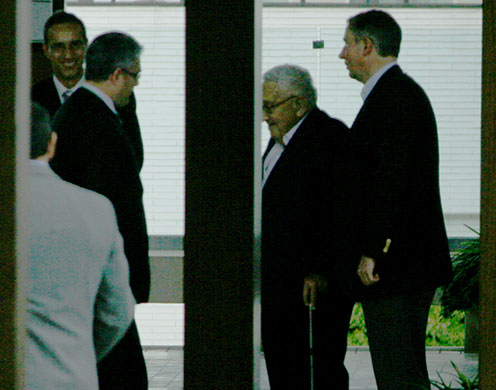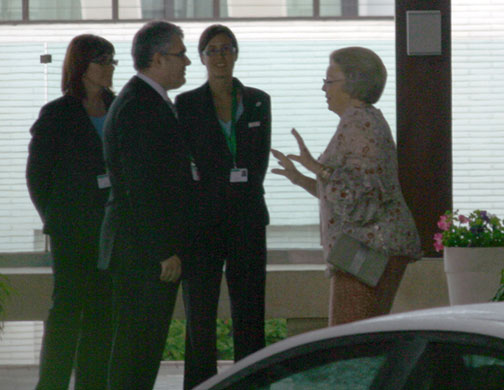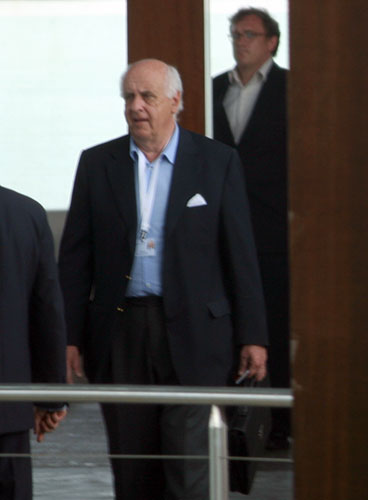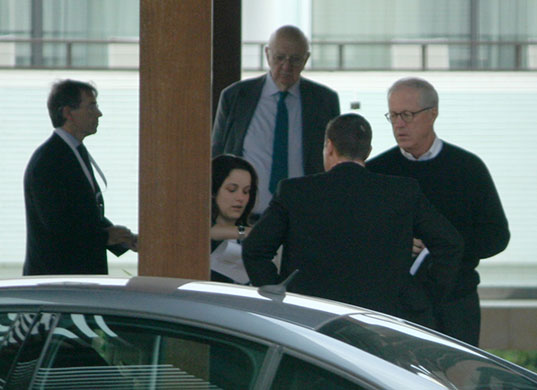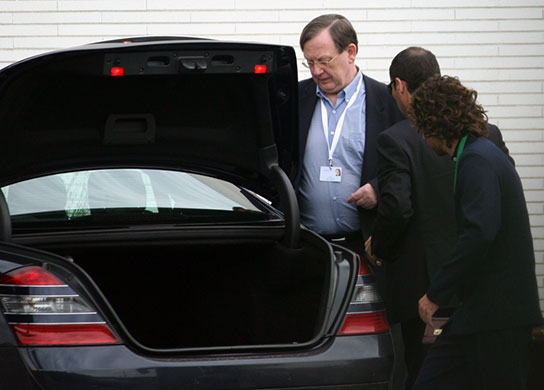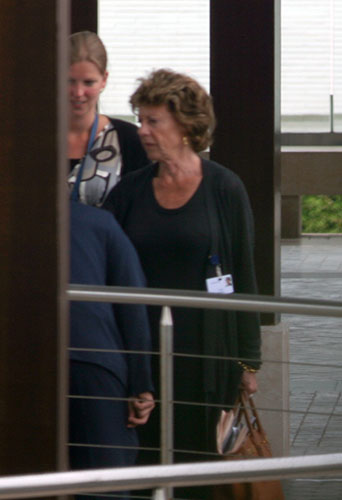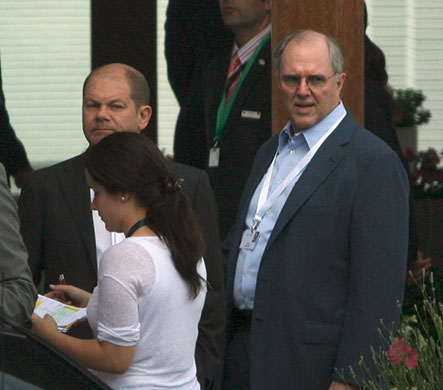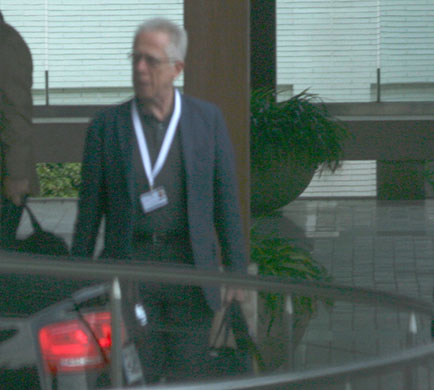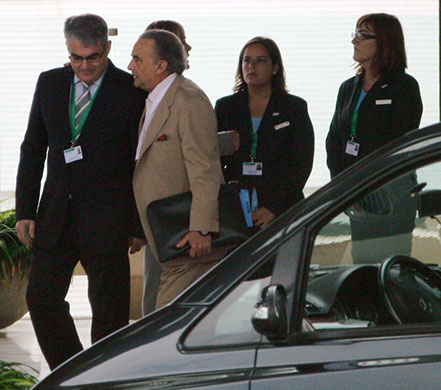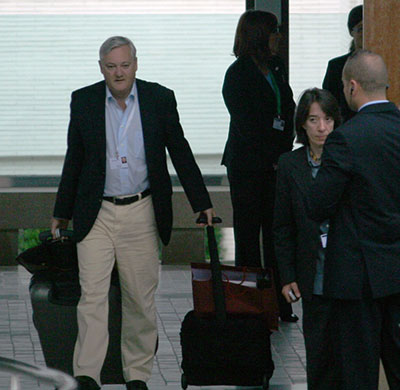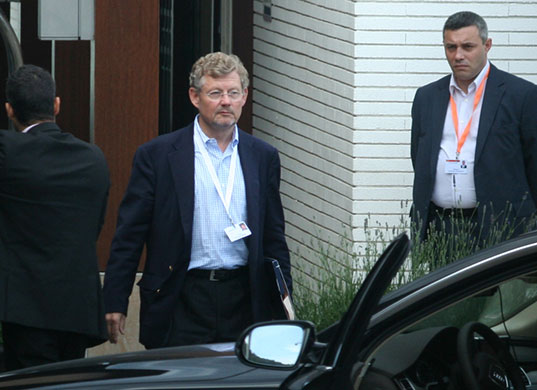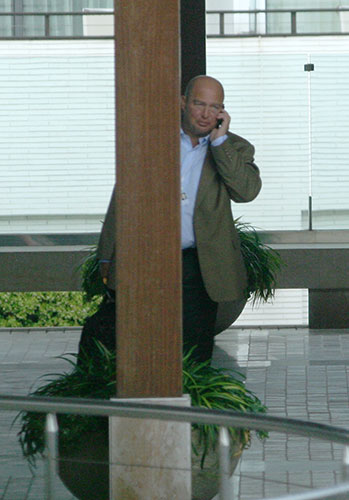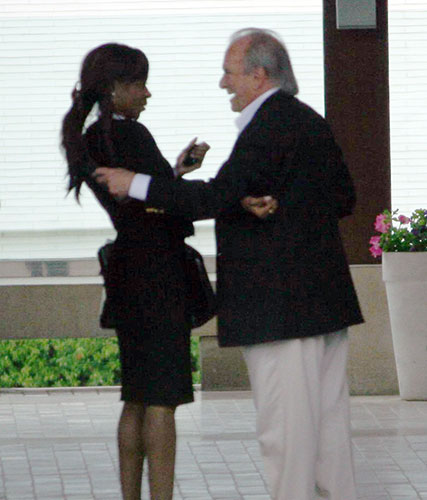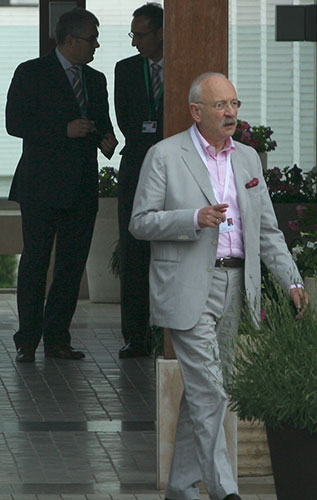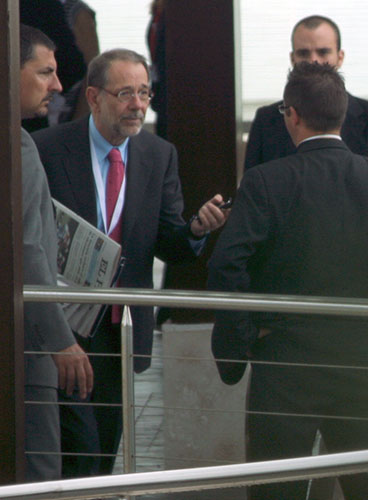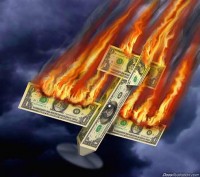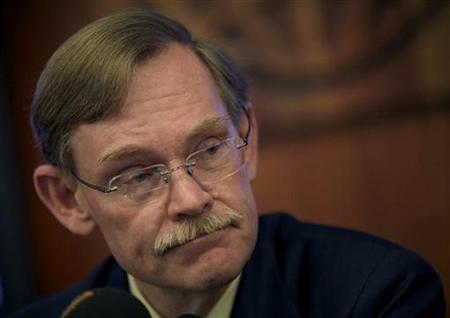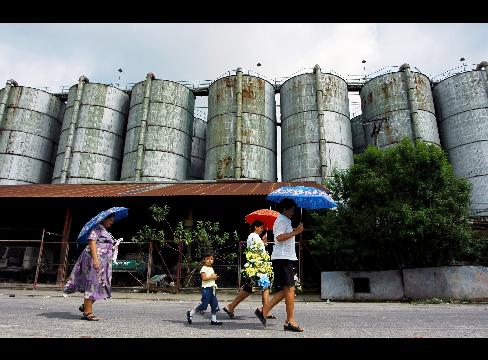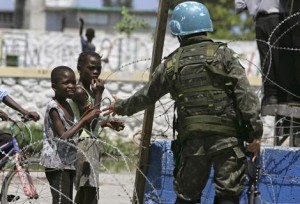Bilderberg Meetings
Sitges, Spain 3-6 June 2010
Final List of Participants
Honorary Chairman BEL Davignon, Etienne Vice Chairman, Suez-Tractebel
DEU Ackermann, Josef Chairman of the Management Board and the Group Executive Committee, Deutsche Bank AG
GBR Agius, Marcus Chairman, Barclays Bank PLC
ESP Alierta, César Chairman and CEO, Telefónica
INT Almunia, Joaquín Commissioner, European Commission
USA Altman, Roger C. Chairman, Evercore Partners Inc.
USA Arrison, Sonia Author and policy analyst
SWE Bäckström, Urban Director General, Confederation of Swedish Enterprise
PRT Balsemão, Francisco Pinto Chairman and CEO, IMPRESA, S.G.P.S.; Former Prime Minister
ITA Bernabè, Franco CEO, Telecom Italia S.p.A.
SWE Bildt, Carl Minister of Foreign Affairs
FIN Blåfield, Antti Senior Editorial Writer, Helsingin Sanomat
ESP Botín, Ana P. Executive Chairman, Banesto
NOR Brandtzæg, Svein Richard CEO, Norsk Hydro ASA
AUT Bronner, Oscar Publisher and Editor, Der Standard
TUR Çakir, Ru?en Journalist
CAN Campbell, Gordon Premier of British Columbia
ESP Carvajal Urquijo, Jaime Managing Director, Advent International
FRA Castries, Henri de Chairman of the Management Board and CEO, AXA
ESP Cebrián, Juan Luis CEO, PRISA
ESP Cisneros, Gustavo A. Chairman and CEO, Cisneros Group of Companies
CAN Clark, W. Edmund President and CEO, TD Bank Financial Group
USA Collins, Timothy C. Senior Managing Director and CEO, Ripplewood Holdings, LLC
ITA Conti, Fulvio CEO and General Manager, Enel SpA
GRC David, George A. Chairman, Coca-Cola H.B.C. S.A.
DNK Eldrup, Anders CEO, DONG Energy
ITA Elkann, John Chairman, Fiat S.p.A.
DEU Enders, Thomas CEO, Airbus SAS
ESP Entrecanales, José M. Chairman, Acciona
DNK Federspiel, Ulrik Vice President Global Affairs, Haldor Topsøe A/S
USA Feldstein, Martin S. George F. Baker Professor of Economics, Harvard University
USA Ferguson, Niall Laurence A. Tisch Professor of History, Harvard University
AUT Fischer, Heinz Federal President
IRL Gallagher, Paul Attorney General
USA Gates, William H. Co-chair, Bill & Melinda Gates Foundation and Chairman, Microsoft Corporation
USA Gordon, Philip H. Assistant Secretary of State for European and Eurasian Affairs
USA Graham, Donald E. Chairman and CEO, The Washington Post Company
INT Gucht, Karel de Commissioner, European Commission
TUR Gürel, Z. Damla Special Adviser to the President on EU Affairs
NLD Halberstadt, Victor Professor of Economics, Leiden University; Former Honorary Secretary General of Bilderberg Meetings
USA Holbrooke, Richard C. Special Representative for Afghanistan and Pakistan
NLD Hommen, Jan H.M. Chairman, ING Group
USA Hormats, Robert D. Under Secretary for Economic, Energy and Agricultural Affairs
BEL Huyghebaert, Jan Chairman of the Board of Directors, KBC Group
USA Johnson, James A. Vice Chairman, Perseus, LLC
FIN Katainen, Jyrki Minister of Finance
USA Keane, John M. Senior Partner, SCP Partners
GBR Kerr, John Member, House of Lords; Deputy Chairman, Royal Dutch Shell plc.
USA Kissinger, Henry A. Chairman, Kissinger Associates, Inc.
USA Kleinfeld, Klaus Chairman and CEO, Alcoa
TUR Koç, Mustafa V. Chairman, Koç Holding A.?.
USA Kravis, Henry R. Founding Partner, Kohlberg Kravis Roberts & Co.
USA Kravis, Marie-Josée Senior Fellow, Hudson Institute, Inc.
INT Kroes, Neelie Commissioner, European Commission
USA Lander, Eric S. President and Director, Broad Institute of Harvard and MIT
FRA Lauvergeon, Anne Chairman of the Executive Board, AREVA
ESP León Gross, Bernardino Secretary General, Office of the Prime Minister
DEU Löscher, Peter Chairman of the Board of Management, Siemens AG
NOR Magnus, Birger Chairman, Storebrand ASA
CAN Mansbridge, Peter Chief Correspondent, Canadian Broadcasting Corporation
USA Mathews, Jessica T. President, Carnegie Endowment for International Peace
CAN McKenna, Frank Deputy Chair, TD Bank Financial Group
GBR Micklethwait, John Editor-in-Chief, The Economist
FRA Montbrial, Thierry de President, French Institute for International Relations
ITA Monti, Mario President, Universita Commerciale Luigi Bocconi
INT Moyo, Dambisa F. Economist and Author
USA Mundie, Craig J. Chief Research and Strategy Officer, Microsoft Corporation
NOR Myklebust, Egil Former Chairman of the Board of Directors SAS, Norsk Hydro ASA
USA Naím, Moisés Editor-in-Chief, Foreign Policy
NLD Netherlands, H.M. the Queen of the
ESP Nin Génova, Juan María President and CEO, La Caixa
DNK Nyrup Rasmussen, Poul Former Prime Minister
GBR Oldham, John National Clinical Lead for Quality and Productivity
FIN Ollila, Jorma Chairman, Royal Dutch Shell plc
USA Orszag, Peter R. Director, Office of Management and Budget
TUR Özilhan, Tuncay Chairman, Anadolu Group
ITA Padoa-Schioppa, Tommaso Former Minister of Finance; President of Notre Europe
GRC Papaconstantinou, George Minister of Finance
USA Parker, Sean Managing Partner, Founders Fund
USA Pearl, Frank H. Chairman and CEO, Perseus, LLC
USA Perle, Richard N. Resident Fellow, American Enterprise Institute for Public Policy Research
ESP Polanco, Ignacio Chairman, Grupo PRISA
CAN Prichard, J. Robert S. President and CEO, Metrolinx
FRA Ramanantsoa, Bernard Dean, HEC Paris Group
PRT Rangel, Paulo Member, European Parliament
CAN Reisman, Heather M. Chair and CEO, Indigo Books & Music Inc.
SWE Renström, Lars President and CEO, Alfa Laval
NLD Rinnooy Kan, Alexander H.G. Chairman, Social and Economic Council of the Netherlands (SER)
ITA Rocca, Gianfelice Chairman, Techint
ESP Rodriguez Inciarte, Matías Executive Vice Chairman, Grupo Santander
USA Rose, Charlie Producer, Rose Communications
USA Rubin, Robert E. Co-Chairman, Council on Foreign Relations; Former Secretary of the Treasury
TUR Sabanci Dinçer, Suzan Chairman, Akbank
ITA Scaroni, Paolo CEO, Eni S.p.A.
USA Schmidt, Eric CEO and Chairman of the Board, Google
AUT Scholten, Rudolf Member of the Board of Executive Directors, Oesterreichische Kontrollbank AG
DEU Scholz, Olaf Vice Chairman, SPD
INT Sheeran, Josette Executive Director, United Nations World Food Programme
INT Solana Madariaga, Javier Former Secretary General, Council of the European Union
ESP Spain, H.M. the Queen of
USA Steinberg, James B. Deputy Secretary of State
INT Stigson, Björn President, World Business Council for Sustainable Development
USA Summers, Lawrence H. Director, National Economic Council
IRL Sutherland, Peter D. Chairman, Goldman Sachs International
GBR Taylor, J. Martin Chairman, Syngenta International AG
PRT Teixeira dos Santos, Fernando Minister of State and Finance
USA Thiel, Peter A. President, Clarium Capital Management, LLC
GRC Tsoukalis, Loukas President, ELIAMEP
INT Tumpel-Gugerell, Gertrude Member of the Executive Board, European Central Bank
USA Varney, Christine A. Assistant Attorney General for Antitrust
CHE Vasella, Daniel L. Chairman, Novartis AG
USA Volcker, Paul A. Chairman, Economic Recovery Advisory Board
CHE Voser, Peter CEO, Royal Dutch Shell plc
FIN Wahlroos, Björn Chairman, Sampo plc
CHE Waldvogel, Francis A. Chairman, Novartis Venture Fund
SWE Wallenberg, Jacob Chairman, Investor AB
NLD Wellink, Nout President, De Nederlandsche Bank
USA West, F.J. Bing Author
GBR Williams, Shirley Member, House of Lords
USA Wolfensohn, James D. Chairman, Wolfensohn & Company, LLC
ESP Zapatero, José Luis Rodríguez Prime Minister
DEU Zetsche, Dieter Chairman, Daimler AG
INT Zoellick, Robert B. President, The World Bank Group
Rapporteurs
GBR Bredow, Vendeline von Business Correspondent, The Economist
GBR Wooldridge, Adrian D. Business Correspondent, The Economist
Source: Bilderberg Meetings
See also:
– Spanish PM to Open Secretive Bilderberg Club Meeting in Sitges
– Bilderberg 2010: The Shadowy Global Elite Is Meeting In Sitges
– Bilderberg investigation revealed to European Parliament
– The Elitist Takeover of Poland: IMF’s Marek Belka, Polish Ex-PM and Bilderberg Member Proposed as Polish Central Bank Head



